Kleine Kinder sind in vieler Hinsicht klüger, kreativer und fürsorglicher als Erwachsene. Jedes Neugeborene bringt beinahe unendlich viele Entwicklungsmöglichkeiten mit auf die Welt. Alison Gopnik erklärt, wie Kinder denken und fühlen und wie Eltern sie optimal fördern können. Und sie zeigt, wie viel Erwachsene von Kindern lernen können. Die Kinderpsychologin und Kognitionsforscherin Alison Gopnik hat sich intensiv mit der Entwicklung von Babys und Kleinkindern beschäftigt. Dass kleine Kinder keine unbeschriebenen Blätter sind, weiß man inzwischen. Doch die Anlagen und Fähigkeiten, mit denen Kinder geboren werden, sind viel größer und vielfältiger, als man bisher geglaubt hat. Das belegt Alison Gopnik mit ihren Studien eindrucksvoll. In ihrer Wahrnehmungsfähigkeit, ihrer Fürsorglichkeit, ihrem moralischen Empfinden, ihrem Gefühl für Verantwortung haben Kinder den Erwachsenen sogar etwas voraus. Doch all diese Anlagen müssen gefördert werden, damit sie nicht verkümmern. Dafür müssen Eltern und Pädagogen verstehen, wie Kinder „ticken“. Sie denken, fühlen und handeln ganz anders als Erwachsene, das erläutert Alison Gopnik überzeugend und mit vielen lebendigen Beispielen. Wenn wir die Einzigartigkeit von Kindern verstehen, können wir ihnen helfen, sich zu entfalten - und wir können auch uns selbst besser verstehen.
Alison Gopnik Bücher
Alison Gopnik ist eine international anerkannte führende Forscherin im Bereich des kindlichen Lernens und der kindlichen Entwicklung. Ihre Arbeit beleuchtet die Gedankenwelt von Kindern und war die erste, die argumentierte, dass Kinderdenken uns helfen kann, tiefe philosophische Fragen zu verstehen. Sie ist eine der Begründerinnen der Erforschung der „Theory of Mind“ und formulierte die „Theorie-Theorie“, die beschreibt, wie Kinder auf ähnliche Weise lernen wie Wissenschaftler. Ihre Schriften für ein breiteres Publikum untersuchen, wie uns kindliches Denken etwas über Liebe, Wahrheit und den Sinn des Lebens lehren kann.
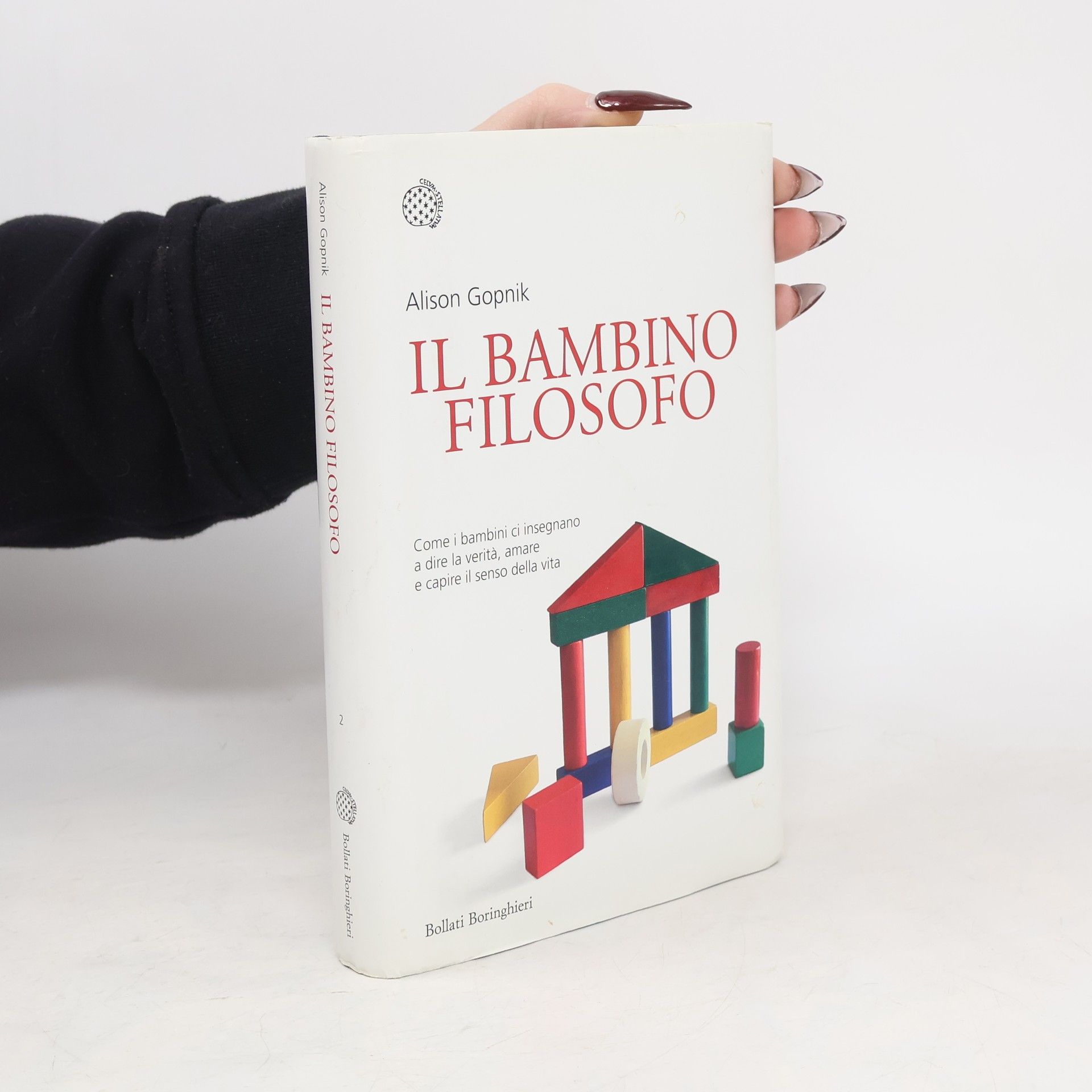
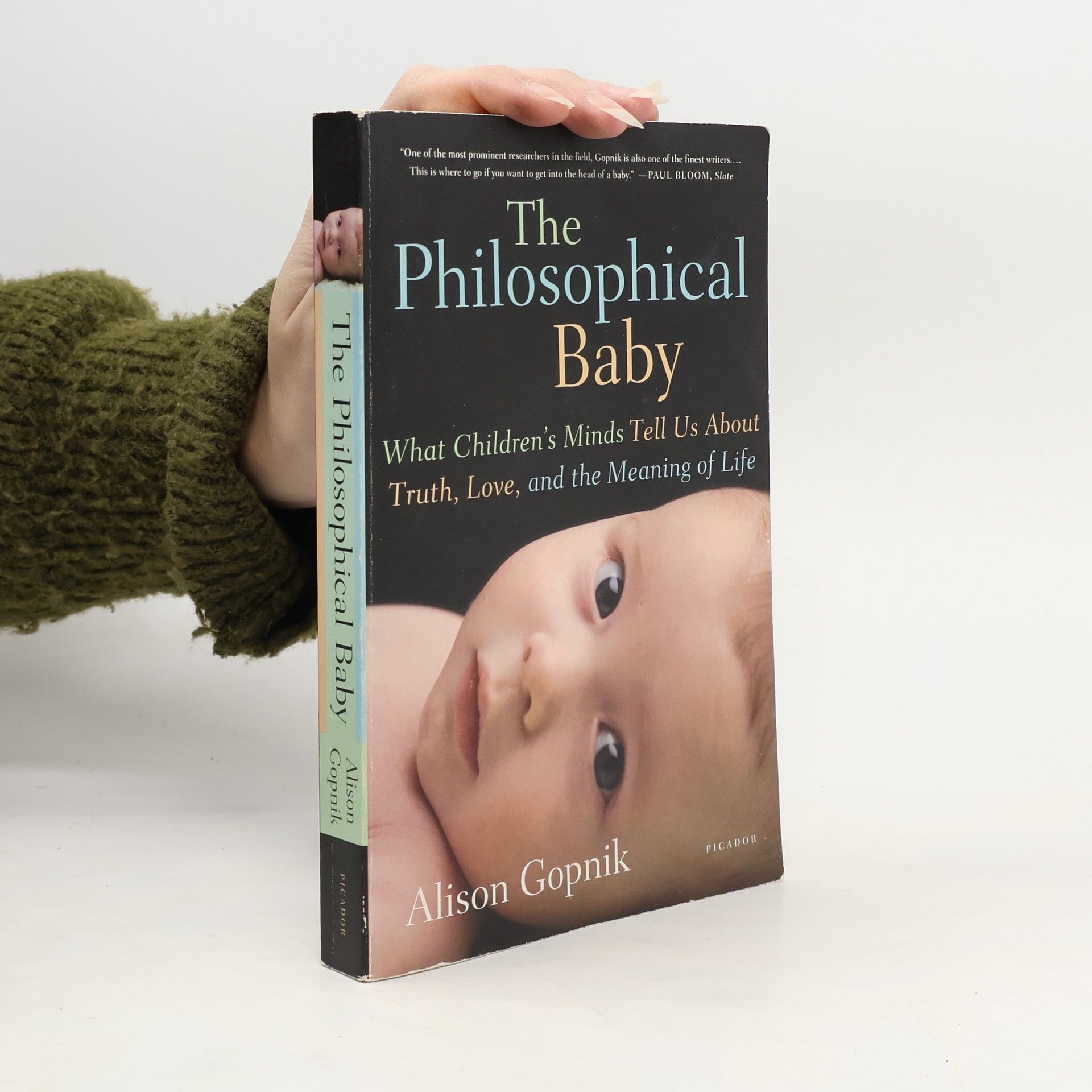
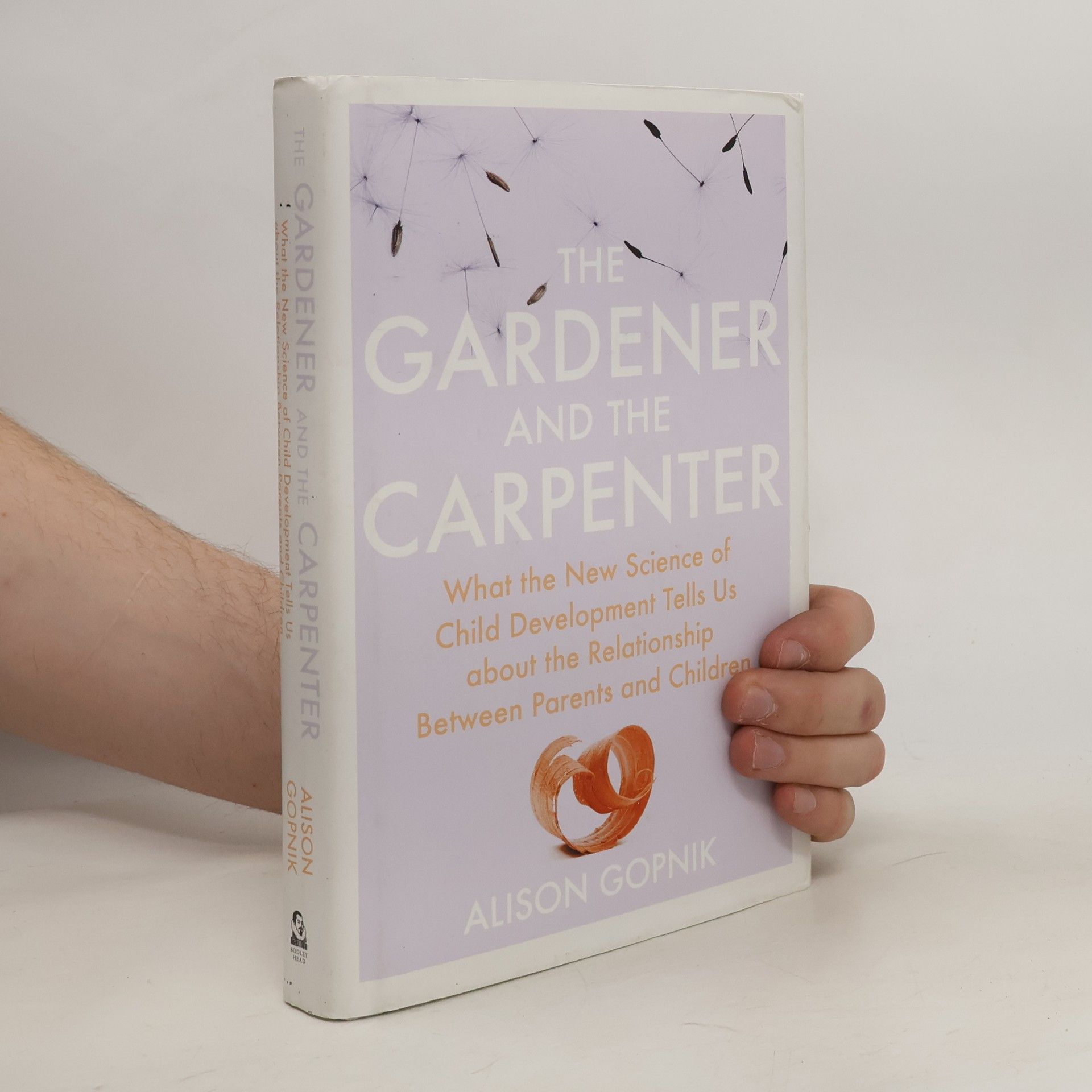

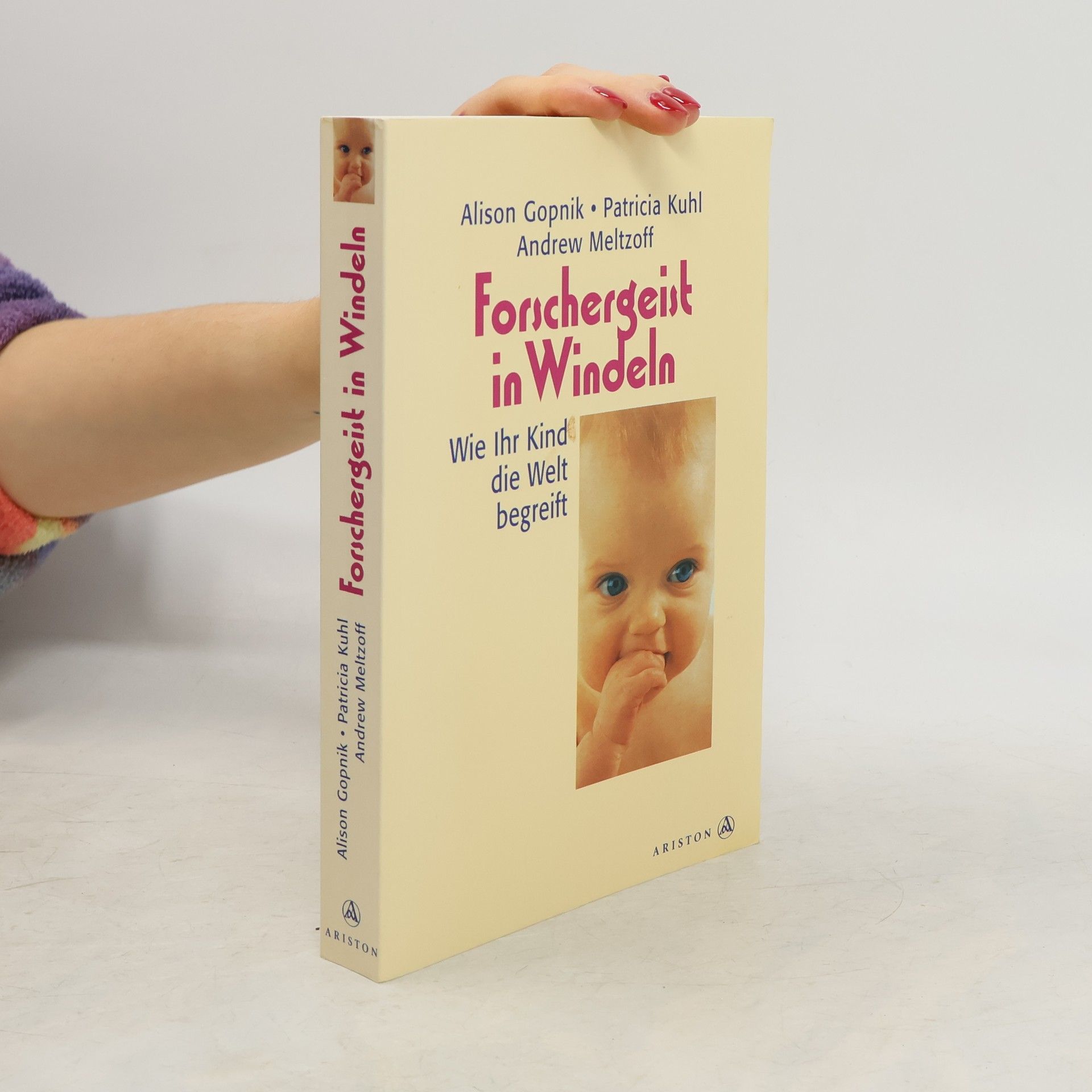
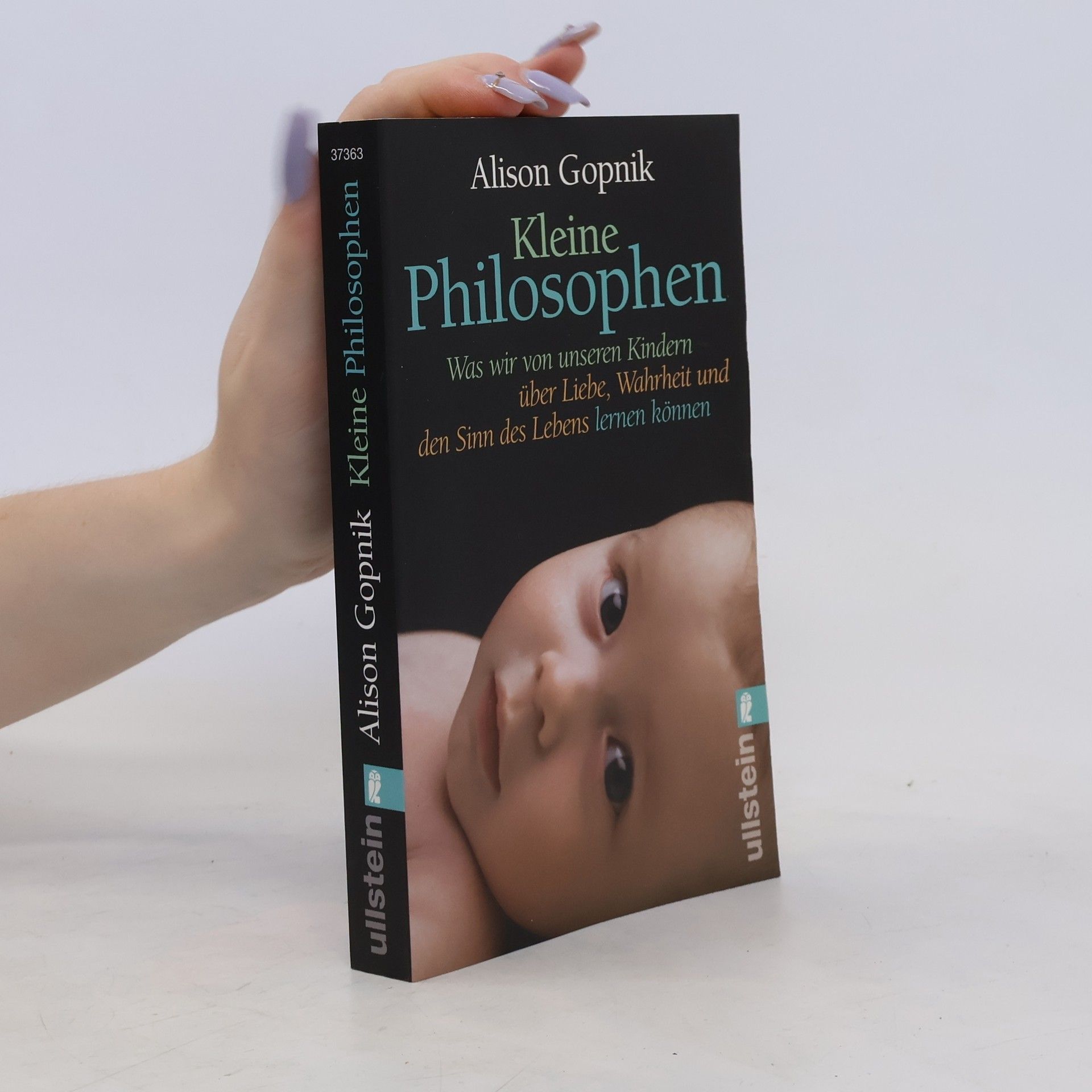
Forschergeist in Windeln
- 293 Seiten
- 11 Lesestunden
Babys lernen in den ersten drei Monaten mehr als ein Student in vier Jahren. Kinder im Alter von ein bis drei Jahren können bereits verallgemeinern und lernen individuelle Eigenschaften zu erkennen. Was Kinder im Alter von zwei Jahren schon spüren, ahnen und wahrnehmen, ist unglaublich und zeigt die erstaunliche Präzision, mit der sich das Wunderwerk Gehirn die Welt erobert. Ein aufregendes Buch über die Entwicklung des Kleinkindes, ein Buch, das Eltern hilft, die geistigen Fortschritte ihres Kindes zu beobachten, zu verstehen und zu unterstützen.
Words, Thoughts, and Theories
- 288 Seiten
- 11 Lesestunden
The book presents and defends the "theory theory" of cognitive and semantic development, suggesting that infants and young children learn about their environment by forming and adjusting theories, akin to scientific inquiry. This perspective offers significant insights into the origins of knowledge and meaning, influencing the field of cognitive science and reshaping our understanding of child development.
Caring deeply about our children is part of what makes us human. Yet the thing we call "parenting" is a surprisingly new invention. In the past thirty years, the concept of parenting and the multibillion dollar industry surrounding it have transformed child care into obsessive, controlling, and goal-oriented labor intended to create a particular kind of child and therefore a particular kind of adult. In The Parent Paradoxes, the pioneering developmental psychologist and philosopher Alison Gopnik argues that the familiar twenty-first-century picture of parents and children is profoundly wrong--it's not just based on bad science, it's bad for kids and parents, too. Drawing on the study of human evolution and her own cutting-edge scientific research into how children learn, Gopnik shows that although caring for children is profoundly important, it is not a matter of shaping them to turn out a particular way. Children are designed to be messy and unpredictable, playful and imaginative, and to be very different both from their parents and from each other. The variability and flexibility of childhood lets them innovate, create, and survive in an unpredictable world. "Parenting" won't make children learn--but caring parents let children learn by creating a secure, loving environment.
The Philosophical Baby: What Children's Minds Tell Us about Truth, Love, and the Meaning of Life
- 304 Seiten
- 11 Lesestunden
In the last decade there has been a revolution in our understanding of the minds of infants and young children. We used to believe that babies were irrational, and that their thinking and experience were limited. Now Alison Gopnik — a leading psychologist and philosopher, as well as a mother — explains the cutting-edge scientific and psychological research that has revealed that babies learn more, create more, care more, and experience more than we could ever have imagined. And there is good reason to believe that babies are actually smarter, more thoughtful, and more conscious than adults. In a lively and accessible tour of the groundbreaking new psychological, neuroscientific, and philosophical developments, Gopnik offers new insight into how babies see the world, and in turn promotes a deeper appreciation for the role of parents in shaping the lives of their children.
Il bambino filosofo
Come i bambini ci insegnano a dire la verità, amare e capire il senso della vita
- 298 Seiten
- 11 Lesestunden
Cosa pensano i nostri figli quando, appena in grado di parlare, si dedicano con serietà alla creazione di realtà immaginarie? Come si manifestano i loro stati coscienti, così diversi dal flusso cartesiano descritto dai filosofi? Alison Gopnik esplora il confine tra scienza, filosofia e sentimenti materni, dimostrando che i bambini non sono affatto irrazionali o limitati nelle loro capacità intellettuali. Al contrario, ci sono buone ragioni per credere che siano più intelligenti, perspicaci e consapevoli degli adulti. Lo studio del loro comportamento ci avvicina ai fondamenti dell'essere umano: gli occhi di un neonato che incontrano lo sguardo del genitore rivelano cosa siano amore e fedeltà, mentre le incessanti esplorazioni di un bambino più grande svelano le motivazioni dietro la ricerca scientifica e la scoperta di nuovi mondi. Gopnik, scienziata e madre, riesce a catturare la complessità infantile in pagine rigorose ma empatiche. Il libro ha ottenuto un ampio consenso internazionale e ha suscitato dibattiti. Dopo averlo letto, guarderemo i nostri figli con occhi completamente nuovi.
